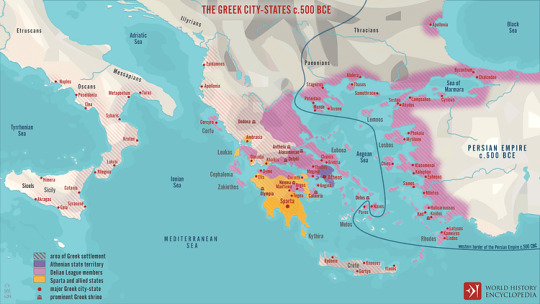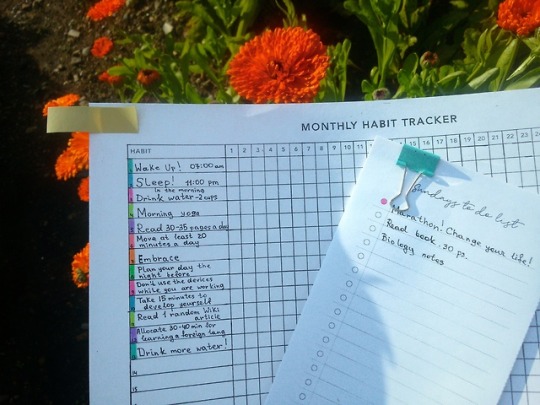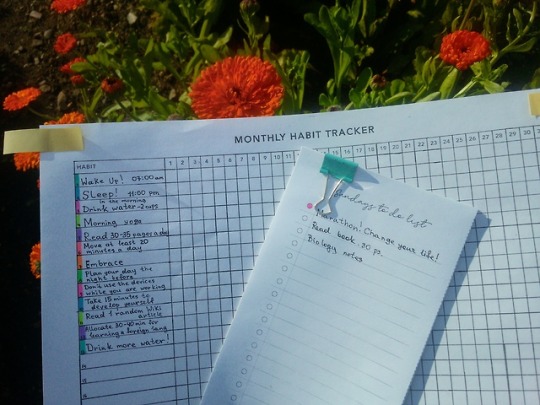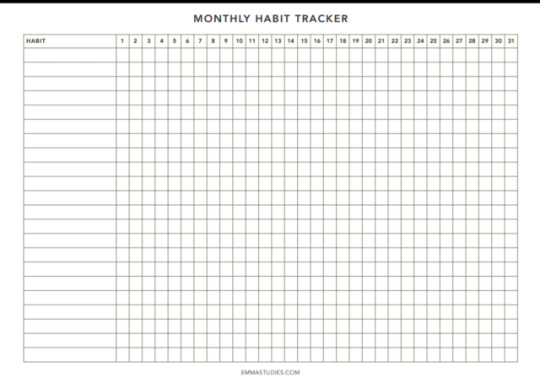Text
Best language learning tips & masterlists from other bloggers I’ve come across
(these posts are not my own!)
THE HOLY GRAIL of language learning (-> seriously tho, this is the BEST thing I’ve ever come across)
Tips:
Some language learning exercises and tips
20 Favorite Language Learning Tips
what should you be reading to maximize your language learning?
tips for learning a language (things i wish i knew before i started)
language learning and langblr tips
Tips on how to read in your target language for longer periods of time
Tips and inspiration from Fluent in 3 months by Benny Lewis
Tips for learning a sign language
Tips for relearning your second first language
How to:
how to self teach a new language
learning a language: how to
learning languages and how to make it fun
how to study languages
how to practice speaking in a foreign language
how to learn a language when you don’t know where to start
how to make a schedule for language learning
How to keep track of learning more than one language at the same time
Masterposts:
Language Study Master Post
Swedish Resources Masterpost
French Resouces Masterpost
Italian Resources Masterpost
Resource List for Learning German
Challenges:
Language-Sanctuary Langblr Challenge
language learning checkerboard challenge
Word lists:
2+ months of language learning prompts
list of words you need to know in your target language, in 3 levels
Other stuff:
bullet journal dedicated to language learning
over 400 language related youtube channels in 50+ languages
TED talks about language (learning)
Learning the Alien Languages of Star Trek
.
Feel free to reblog and add your own lists / masterlists!
15K notes
·
View notes
Photo

The Greek City-states c. 500 BCE
A map illustrating the city-states of Classical Greece around 500 BCE and depicting the expansion of Hellenic influence along the coasts of the Mediterranean and Black sea and the formation and scope of the Delian League, under Athenian hegemony, against the Persian Empire.
74 notes
·
View notes
Photo

Η Νίκη της Σαμοθράκης δυστυχώς στο Λούβρο…ακόμα…
Niki of Samothrace (Winged Victory)
437 notes
·
View notes
Text
We say “English doesn’t make any sense” because saying “English is unusual in that, when it borrows vocabulary from other languages, it tends to partially retain the morphology of the originating language group rather than adapting the word in question to English morphology, which is why we have twelve different ways to construct a plural” takes too long.
21K notes
·
View notes
Text
Plumbeous
Adjective
[pluhm-bee-uh s]
1. resembling or containing lead; leaden.
Origin:
Plumbeous comes straight from the Latin adjective plumbeus “made of lead, leaden, (of coins) base,” a derivative of the noun plumbum. Plumbum is a noun of unknown etymology, and linguists have speculated on the connection between plumbum and Greek mólybdos with its variants mólibos and bólimos, which also have no reliable etymology. In ancient times lead was mined in Attica (i.e., the territory whose capital was Athens), Macedonia, Asia Minor (Anatolia), Etruria, Sardinia, Gaul (France), Britain, and Spain. Many scholars think that the Greek and Latin words derive from an Iberian (Spanish) language, and the Basque word for lead, berun, supports this. Plumbeous entered English in the 16th century.
“…the pencil has been worn down to two-thirds of its original length. The bare wood of its tapered end has darkened to a plumbeous plum, thus merging in tint with the blunt tip of graphite whose blind gloss alone distinguishes it from the wood.”
- Vladimir Nabokov, Transparent Things, 1972
85 notes
·
View notes
Text
λα λα λα λα
La la la la...
Λα λα λα λα...
Yo canto a la mañana
Τραγουδάω για την πρωί
que ve mi juventud.
που βλέπει τα νιάτα μου
Y al sol que día a día
Και για το καθημερινό ήλιο
nos trae nueva inquietud
που μας φέρνει νέες αναρώτησεις
Todo en la vida es
Όλα στην ζωή είναι
como una canción
σαν ένα τραγούδι
te cantan cuando naces
Σε τραγουδάν όταν γεννιέσαι
y también en el adiós
Και όταν γεύγεις επίσης.
La la la la...
Yo canto a mi madre
Τραγουδάω για την μητέρα μου
que dió vida a mi ser
που μου έδωσε ζωή
y canto a la tierra
Και τραγουδώ για την χώρα
que me ha visto crecer
Που μου είδε να μεγαλώσε
Y canto al día en que
Και τραγουδάω στην ημέρα που
sentí el amor
Ένιωθα την έρωτα
andando por la vida
Περπατώντας στην ζωή
aprendí esta canción
έμαθα το τραγούδι αυτό
0 notes
Link
An interesting long article from Nautilus about colour terms in different languages:
When Paul Kay, then an anthropology graduate student at Harvard University, arrived in Tahiti in 1959 to study island life, he expected to have a hard time learning the local words for colors. His field had long espoused a theory called linguistic relativity, which held that language shapes perception. Color was the “parade example,” Kay says. His professors and textbooks taught that people could only recognize a color as categorically distinct from others if they had a word for it. If you knew only three color words, a rainbow would have only three stripes. Blue wouldn’t stand out as blue if you couldn’t name it.
What’s more, according to the relativist view, color categories were arbitrary. The spectrum of color has no intrinsic organization. Scientists had no reason to suspect that cultures divvied it up in similar ways. To an English speaker like Kay, the category “red” might include shades ranging from deep wine to light ruby. But to Tahitians, maybe “red” also included shades that Kay would call “orange” or “purple.” Or maybe Tahitians chunked colors not by a combination of hue, lightness and saturation, as Americans do, but by material qualities, like texture or sheen.
To his surprise, however, Kay found it easy to understand colors in Tahitian. The language had fewer color terms than English. For example, only one word, ninamu, translated to both green and blue (now known as grue). But most Tahitian colors mapped astonishingly well to categories that Kay already knew intuitively, including white, black, red, and yellow. It was strange, he thought, that the groupings weren’t more random.
A few years later, back in Boston, he was shooting the breeze with a fellow anthropologist, Brent Berlin, who had worked as a graduate student among speakers of the Mayan language Tzeltal, in Chiapas, Mexico. There, Berlin told Kay, he had encountered exactly the same color categories that Kay had observed in Tahiti, including a single word for grue. “The two languages are as unrelated to each other historically as any two languages can be,” Kay says. And yet they seemed to give rise to a common way of seeing and thinking about color. Either he and Berlin had stumbled upon a one-in-a-million coincidence. Or the relativists were wrong.
To solve the puzzle, the young scientists needed more data. In the mid-1960s, they were both hired as professors at the University of California, Berkeley, and with their students’ help, they rounded up native speakers of 20 languages, including Arabic, Hungarian, and Swahili. The researchers showed each speaker 329 standard color chips and asked him or her to name each one’s “basic color term”—the simplest, broadest word that described its shade. Drawing from previous anthropological work, they added color lexicons from 78 additional languages around the world.The results revealed two remarkable patterns, which Kay and Berlin laid out in their 1969 monograph, Basic Color Terms. First, almost all of the languages they examined appeared to have color words that drew from the same 11 basic categories: white, black, red, green, yellow, blue, brown, purple, pink, orange, and gray. Second, cultures seemed to build up their color vocabularies in a predictable way. Languages with only two color categories chunked the spectrum into blacks and whites. Languages with three categories also had a word for red. Green or yellow came next. Then blue. Then brown. And so on.
It’s really worth reading the whole thing though, as the story gets more complex from here. The World Color Survey data is available online here and you can also play with the basic colour terms map at WALS.
864 notes
·
View notes
Photo



Marathon! Change your life!
How often do you say to yourself, “I’ll Start on Monday!“and still put off for later? Are you ready to challenge yourself and turn your life upside down, starting with small steps? Are you ready to be the best version of yourself? Ready to learn to go to your goal, to go to the end? Then participate! I suggest we start on Monday! //symbolic// Only this time, no excuses!
let’s Call it ‘Change your life’. Goal: Get a bunch of good habits.
What do you need for this? You need to print that wonderful sign in the photos, or draw yourself. It needs to be done today, because tomorrow we start. Next, you need to determine what habits you want to put in your life rhythm. Put them in the tracker. Thank u @emmastudies for this Monthly Habit Tracker!🍉 And you need motivation and persistence!
How do you keep motivated?
I thought about that too. We will motivate each other! Every day you can summarize on your blog using the hashtag #marathonwithstudypeachs . So all participants will be easier to find each other’s posts, and thus receive a portion of motivation and boldly go to the end!
And now let’s talk about those habits that should be in each tracker.
🌟 Wake up at 7:00 am!
🌟 Drink 2 glasses of water in the morning and drink plenty of water during the day.
🌟 Morning yoga. Exercises can be found online or replaced with normal charging.
🌟Read 30-35 pages of the book every day.Choose the book you got today)
🌟 Move 20 minutes per day. you can run, walk with friends, jump, swim, but not sit!
🌟 Hug at least one person a day!this is also important. Hugs will cheer you up)
🌟 Plan your day from the evening! Every night you will make a plan for the next day. This habit will help you become more organized.
🌟 Do not use the device during operation! You’d be surprised how much time you’ll have and how much productivity you’ll have.
🌟Take 15 minutes to develop yourself! you can watch thematic videos on YouTube or read self-development books, find useful sites and learn something new.
🌟 Read 1 random Wikipedia article every day!as a result, you will fit 31 articles in your head. And, if it becomes a habit, you will get knowledge from different areas and further, which will make you a versatile person.
🌟 Spend 30-40 minutes in a foreign language! have you been wanting to learn English or German, Chinese or Italian for A long time? Start now! Get closer to the dream every day.
🌟 Go to bed at 11:00 pm!you need 8 hours for a good rest.
Well, are you in? Will you challenge yourself?! I hope so.
make a reblog to have more participants! Together we can!
7K notes
·
View notes
Text
Κοινωνώ y sus hermanos
κοινωνώ - hacer común
κοινονία - comunidad, sociedad
κοινωνικός - social
αντικοινωνικός - antisocial
ακοινωνικός - asocial
κοινωνιολογία - sociología
κοινωνιολόγος - sociólogo
κοινωνικοποίηση - creación de una sociedad
ανακοινώνω - anunciar
ανακοίνωση - anuncio
επικοινωνώ (με) - comunicarse (con)
επικοινωνία - comunicación
επικοινωνικός - referente a la comunicación
τηλεπικοινωνία - telecomunicación
συγκοινωνώ (με) - transportar (con)
συγκοινωνία - el transporte
συγκοινωνιακός - referente al transporte
συγκοινωνιολογία - ciencia del transporte
συγκοινωνιολόγος - científico del transporte
Tengo que decir que hay algunos conceptos bastante complicados de traducir o que se comprendan en español debido a su inexistencia en nuestro idioma... el ¿¿transportólogo?? Sería algo como experto en medios de transporte o algo así...
0 notes
Text
Οι 5 αισθήσεις
η όραση - vista
η αφή - tacto
η ακοή - oído
η γεύση - gusto
η όσφρηση - olfato
0 notes
Text
Μένω y sus hermanos
μένω - permanecer, quedarse
αναμένω - esperar (con seguridad porque lo sabes con anterioridad)
επιμένω - insistir
παραμένω - permanecer, quedarse cerca, quedarse más de lo previsto
διαμένω - residir
υπομένω - tener paciencia, sufrir, aguantar
ανυπομονώ - impacientarse
απομένω - quedarse
περιμένω - esperar
προσμένω - esperar con esperanza
εμμένω - persistir, porfiar
1 note
·
View note
Text
C.C. Tiempo
πάντα
σχεδόν πάντα
συνήθος
συχνά
πολλές φορές
μερικές φορές
καμιά φορά
κάπου κάπου
σπάνια
ποτέ (+δεν)
0 notes
Text
cuánto - cuántos
πόσος - πόση - πόσο
πόσον - πόση - πόσο
πόσοι - πόσες - πόσα
πόσους - πόσες - πόσα
0 notes
Text
Mucho y muchos
πολύς - πολλή - πολύ
πολύ - πολλή - πολύ
πολλοί - πολλές - πολλά
πολλούς - πολλές - πολλά
0 notes
Text
haber, existir
No se conjuga el verbo:
υπάρχει + 1 COSA EN NOMINATIVO
υπάρχουν + 2 O MAS COSAS EN NOMINATIVO
Se conjuga el verbo:
έχει + FORMA EN ACUSATIVO
υπάρχει ένας άντρας
υπάρχουν δύο γυναίκες
έχει έναν άντρα
έχουν δύο άντρες
0 notes

